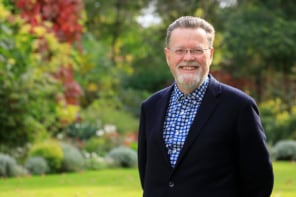Are you aware of cases where patents have hindered or prevented fundamental research? If so, Robert P Crease wants to know

Does patenting impede scientific research?
Those who favour patenting say that protecting intellectual property helps advance science and technology by promoting risk-taking. A mechanism is generally needed, they say, to protect ownership of an invention while its ramifications are explored and financed. That mechanism is called a patent. Patents also help drive scientific and technical progress by discouraging trade secrets, making legal protection contingent on prompt disclosure of technical advances, and permitting free use of an invention once its patent has expired.
Those opposed to patents claim they block competition and are a nuisance. Patents can keep researchers from using a promising method and may inhibit research in fields where other scientists or engineers are known to hold patents. They can have a chilling effect by dampening the desire of scientists to enter areas of research where the situation is unclear.
In 1972 the US Supreme Court ruled that “products of nature” (such as genes and bacteria), natural laws (E = mc2 etc.) and abstract ideas (such as mathematical formulae) are “the basic tools of scientific and technological work that lie beyond the domain of patent protection”. Allowing patents on these things would threaten to “inhibit future innovation premised upon them”. This ruling affects only US law. But it was a grand claim for which the court offered no support; no references, say, to historians or philosophers of science. So was the court’s concern for research anchored in scientific practice or was it based on mythology?
Physics patents
Famous patent cases involving physics include the US physicist Glenn Seaborg’s patent on americium (US patent 3 156 523, filed 1946, issued 1964). His patent application, two pages long, is one of the shortest patent claims in history. The claim – covering “element 95” – has long expired. It did not, however, stop transuranic research, nor prevent americium from being incorporated into numerous industrial uses such as household smoke detectors.
In 1934 Leó Szilárd filed a British patent on a simple idea for a reactor, before the discovery of fission, but it was not issued. Ten years later, he and Enrico Fermi applied for another patent for a fission reactor, but its issue was delayed a decade due to secrecy (US Patent 2 708 656, filed 1944, issued 1955). The patent did not, however, impede reactor development. Nor has research involving lasers been impeded by patents.
Nicholas Christofilos’s patent of the “strong-focusing” principle, used to control beams in high-energy hadron colliders, is famous thanks to his eccentric personality and dramatic story. Christofilos was a US-born Greek electrical engineer who founded a lift-installation company in Athens and worked on particle-accelerator design in his spare time. In the late 1940s he sent a manuscript outlining the principle to what is now the Lawrence Berkeley National Laboratory.
Berkeley’s accelerator experts pronounced his ideas unsound, pointing out that they violated Maxwell’s equations, among other things. Undeterred, Christofilos revised his idea, applied for US patents in 1949 and 1950 (US Patent 2 736 799, filed 1950, issued 1956), and sent another manuscript to Berkeley, which was thrown into a file without being read. So when Christofilos read of US physicists’ “discovery” of strong focusing in 1952, he borrowed money from a Greek law firm with contacts in Washington and left for the US to press his claim. Red-faced atomic-energy officials granted him $10 000 in exchange for the right to use the strong focusing principle.
In 1972 the US Supreme Court (in Gottschalk v. Benson) decided that a software algorithm for transforming one number into another number was an unpatentable abstraction, and began to express concern about patents inhibiting basic scientific research. More recently, the court has rejected claims for isolated DNA (as a product of nature) and medical diagnostic correlations relevant for deciding medical treatments (as a natural law).
But patent law, like science, is always on the move. In the upcoming Alice v. CLS Bank case – involving a patent claim for computer programs and systems to control credit risk by creating and managing escrow accounts – the court will reconsider what terms such as products of nature, natural law and abstractions mean.
The critical point
Historians, economists and lawyers argue that broad patents – whose claims are framed to make it hard for people to make technical improvements without infringement – have negatively affected the development of many new technologies, including the car and aeroplane. But has fundamental scientific research been hurt?
Legal scholars I know doubt it for three reasons. One is that, in practice, patents are not granted on broad scientific principles. Another is that scientists engaged in fundamental research are often oblivious to patents. A third reason is that people who hold patents often do not enforce them, or license them cheaply to, researchers. No lab scientist I’ve talked to has heard of colleagues receiving “cease and desist” orders.
Still, I think it’s possible that patents have negatively impacted fundamental research. One route might be through cost: budgets are a powerful force in experimental life, and manufacturers may charge more for patent-heavy equipment knowing that similar kit cannot be bought from other firms. Another possibility is self-censorship: scientists may avoid certain research because they fear patents might impede their ability to work, and lack the enthusiasm to do the required investigation.
Are these concerns real or imagined? Has fundamental research ever been retarded by patents? The answer is an empirical one involving actual scientific practice. If evidence exists, however, it is probably not found in documents, but rather in anecdotal information and informal discussions.
So let me ask you – do you know of cases where patents have kept anyone from conducting fundamental research? Please contact me at the e-mail address below and I’ll review the issue in a future column.



